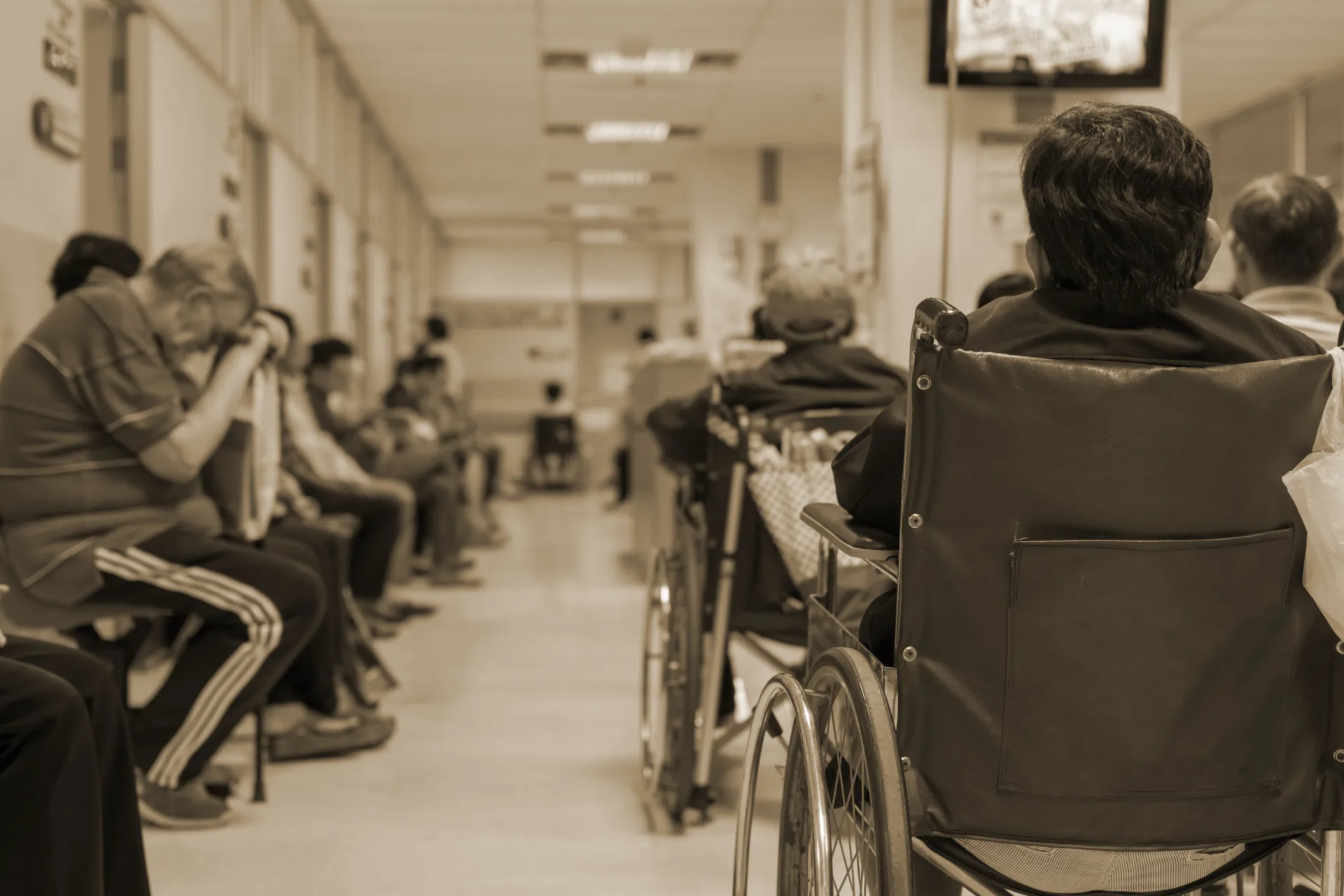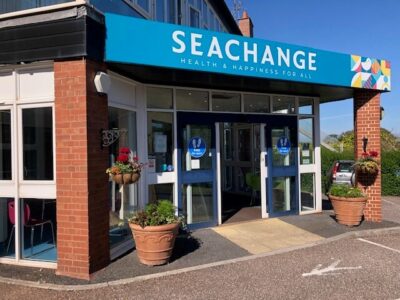Blogs
Report on ICIC25 International Conference on Integrated Care. 14-16 May 2025
CHA President Dr David Seamark attended the International Conference on Integrated Care (ICIC25) on 14-16 May in Lisbon. This is the annual conference of the International Foundation for Integrated Care (IFIC). The conference was attended by over 1000 delegates from clinical and non-clinical backgrounds from over 50 countries. Plenary sessions examined the carbon footprint of health care and what can be done to reduce it, integrated care strategies for universal health coverage and collaborative approaches in integrated care. Community hospitals were featured in a workshop that saw the launch of a new international network. David spoke about the history of the CHA and its role in education, facilitating networking, research and the current situation in the UK. There was an encouraging response with representatives from Singapore, New Zealand, Portugal, Spain and the UK joining the discussion and wanting to join the CHA.
IFIC Scotland has kindly agreed to host the International Community Hospital Network and will be organising webinars and learning events in the future. Further details will be posted on the CHA website.
Dr David Seamark President CHA
More details can be found here
Can we afford not to make integrated health & social care work in Scotland? Dr Alastair Noble is the CHA National Lead for Scotland
In his blog, Dr Alastair Noble addresses the need for reform in Scotland’s health and social care system. Drawing on his experience in Nairn, he advocates for a shift towards integrated care that prioritises local communities over large hospitals. He points out that the current system, with its focus on hospitals, results in unnecessary delays and increased costs. By using data to better understand local needs, Dr Noble believes we can improve care at home, reduce hospital admissions, and ensure better outcomes for patients. This approach would make health and social care more affordable and effective.

Seachange Devon - a vital community hub for health and wellbeing
Marc Jobson is Head of Seachange Devon
Seachange Devon, a charity, located in Budleigh Salterton, operates as a vibrant community hub in conjunction with the NHS, providing a wide range of services aimed at enhancing the health and wellbeing of the local population. Originally Budleigh Salterton’s cottage hospital, the facility was transformed into a community hub in 2018, following a collaboration between the local community, the Royal Devon and Exeter Foundation Trust, Devon Clinical Commissioning Group, and NHS England.
Seachange offers NHS outpatient appointments, GP services, and various health-related activities such as exercise classes and wellness programs. These services are designed to improve community health, reduce isolation, and promote social interaction. The hub also provides space for community gatherings, fostering a sense of belonging and support among residents.
The partnership with the NHS allows Seachange to deliver essential healthcare services locally, reducing the need for residents to travel to larger hospitals. This integration of healthcare and community services not only enhances accessibility but also helps in reducing the overall burden on the NHS by promoting preventive care and early intervention.
Preventative care and early intervention is the key to our model. It not only enables people to live, longer, better lives, but also enhance the quality of life by delaying the onset of diseases, reducing complications and promoting overall health and wellbeing. This is a win-win for the NHS, saving money upfront. The disappointing part is that it is the charities funds that are being spent to save the NHS money. The ICB do not currently provide us with any direct funding. Other hospitals are funded directly so why not ours?
Seachange exemplifies how community-driven initiatives, led by a charity, can create a holistic environment that nurtures both physical and mental health, ultimately contributing to a healthier, happier community.


Getting the hump over the loss of in-patient beds
Chris Humphris is an Associate Member of the CHA
In 2018 a fantastic vision for the replacement of the old Ellen Badger Hospital in Shipston on Stour, Warwickshire, was drawn up by South Warwickshire Foundation Trust. This was an exciting scheme that encompassed the in-patient beds, the relocation of the General Practice, and a whole range of community health and well-being services. The local community were hugely supportive. The League of Friends even donated over £600 k to allow the NHS to purchase adjacent land to facilitate this whole scheme.
Somehow over the intervening years we have managed to move to a situation where SWFT moved the beds ‘temporarily’ to a ward in Leamington Hospital, did a community bed review, and concluded that this would be the best arrangement permanently.
Instead of a proper look at all the local services for Shipston and the surrounding area, the Integrated Care Board just proceeded to consult on the beds, and even then, narrowed it down as much as possible.
The Beds4Badger group, supported by Chris Humphris, an Associate member of the CHA, have galvanised the local community to argue for the restoration of the original vision, or at least as close as we can now get to it. Although the ICB still agreed with the loss of beds from Ellen Badger following rh consultation they have been prompted by the scale of the community response, to launch a rural services group with a focus on this area.
Beds4Badger and other local groups have not given up! They are now trying to work with all the other interested parties to produce a plan for future services, including some community beds, and to use the latest NHS promotion of ‘neighbourhoods’ as a vehicle for doing this.
Meanwhile they definitely get the award for the most eye-catching media-friendly supported. Meet the camel!
https://www.cotswoldjournal.co.uk/news/24888714.beds-badger-protesters-take-shire-hall-camel/
Main content in a larger section (two-thirds width). Replace this text.


Community Hospitals: Debunking Common Myths for a Healthier Perspective Unveiling the Real Story Behind Community Hospitals

Dr Kirsten Protherough Chair & Director of the Community Hospitals Association
In the realm of healthcare, community hospitals are often subject to misconceptions that cloud their true purpose and capabilities. The Community Hospital Association UK sheds light on these institutions, aiming to dispel common myths and bring clarity to their essential role in local healthcare.
Myth #1: Community Hospitals Offer Limited Services
Reality: Far from merely providing basic services, community hospitals are comprehensive healthcare hubs, delivering a diverse range of medical, nursing, and therapeutic services. Their offerings are finely tuned to address the specific healthcare needs of the local community, ranging from routine check-ups to specialized post-operative care and rehabilitation services.
Myth #2: Community Hospitals Lack Professional Expertise
Reality: The dedicated healthcare professionals staffing community hospitals bring a wealth of experience and expertise to the table. From skilled doctors and nurses to therapists and support staff, these institutions are home to professionals committed to ensuring that patients receive top-notch care. Their expertise often extends to specialized areas, contributing to a holistic approach to wellness.
Myth #3: Community Hospitals Are Only for Minor Ailments
Reality: Contrary to the notion that community hospitals are limited to minor ailments, they are fully equipped to manage a broad spectrum of medical conditions. With advanced healthcare technology and collaborative efforts with larger medical centers, these hospitals offer acute and chronic care, diagnostic services, and even emergency care, minimizing the need for patients to travel long distances for treatment.
Myth #4: Community Hospitals Are Becoming Obsolete
Reality: On the contrary, community hospitals are evolving to meet the changing needs of local populations. They integrate modern healthcare practices, leverage cutting-edge technologies, and actively engage in community wellness programs. Positioned at the forefront of preventive care and health education, community hospitals showcase ongoing relevance in the contemporary healthcare landscape.
Myth #5: Community Hospitals Lack Connectivity with Larger Medical Centers
Reality: Far from isolated entities, community hospitals are integral components of the broader healthcare network. They maintain robust connections and referral systems with larger medical centers, ensuring a smooth transition for patients in need of specialized care. This collaborative approach fosters a continuum of care, with community hospitals serving as vital nodes in the healthcare ecosystem.
In conclusion, community hospitals are dynamic institutions with a crucial role in delivering healthcare tailored to local needs. Dispelling these myths allows for a more nuanced understanding of the multifaceted contributions community hospitals make to the overall well-being of the communities they serve.
Download the blog here

Thoughts from Evelyn Prodger RN QN MSc BSc(Hons)
Evelyn is the lead for Quality Improvement for the CHA, and led the study on the contribution of community hospitals during COVID-19, funded by the Health Foundation/Q Community through their Q Exchange programme. The study concluded that community hospitals were shown to be responsive, integrated, flexible, creative, compassionate and resilient. Evelyn discusses these characteristics and draws on case studies and experience to explore what this means for patients, local people, staff and the overall health and care system.
Evelyn writes: Community Hospitals have not always had the recognition they deserve or had their voice heard but our Health Foundation funded project "Community Hospitals: Embedding Covid-19 positive impact changes through shared learning" demonstrated that the rest of the system has a lot to learn from Community Hospitals. As the health and care system continues to face crises about Delayed Transfer of Care, elective waiting times and staffing it is important to remember that to be effective the systems need all the component parts working at their optimum. Bold leadership, flexibility and creativity and fundamental characteristics of Community Hospitals making them well placed to be responsive in its fullest sense."
Download the blog here
Going the Extra Mile for Insch
Chris Humphris
Chris Humphris has been working with the local community in Insch on the future of their community hospital. He writes "I hope that I have been able to help a number of local groups over recent years. I feel passionately that the NHS should not simply write off the beds in a small Community hospital. Instead, they should always seek to work with the local community to come up with the best possible arrangements for the future. In this way they can tap into the passion, enthusiasm and downright creative thinking and skills to produce something positive. These days, we need it!" To read Chris' blog in full, please download here


Inspiring and motivating leadership for the future workforce
Ifunanya A Obi (a.k.a Nanya), Practice Development Nurse
Nanya writes about her experience of inspiring future nurse leaders. To read more about Nanya's programme in her blog, please download here

The Vital Contribution of our Community Hospitals
Dr Kirsten Protherough Chair & Director of the Community Hospital Association
Kirsty makes the case that now, more than ever before, Community Hospitals should be included in key decisions regarding the future of healthcare in the UK. Read the full article here
Can Scotland deliver NHS reform in 2023?
Dr Alastair Noble CHA Committee Member & CHA Lead for Scotland.
Alastair advocates a system which can deliver the best current clinical care for each individual with an integrated health and social care team in each locality and have clinical agreement between the Specialist Consultants and the General Practitioners. Read Alastair's paper for the CHA here and his for Reform Scotland here
.jpg)
Care in a Community Hospital – what it looks like in 2022
Sue Greenwood Matron Cornwall Partnership NHS Foundation Trust and CHA Committee member
March 2022 I would like to share what I believe the Community Hospital offer in 2022, could be, and how you could continue to lead innovation and best practice as a Clinical Matron.

A Pioneering Scheme - Meaningful Activities Coordinator
Anna Mitchell. Lead "Meaningful Activities Coordinator" at Launceston Community Hospital. Cornwall Partnership NHS Foundation Trust.
January 2022
Before joining the NHS I worked in social media and advertising for many years, supporting local businesses in and around Launceston...
What a difference a year makes!
Evelyn Prodger. RN Queens Nurse MSc BSc(Hons) CHA Committee Member.
2020 brought with it more challenges than any of us anticipated when we were mulling over our New Year Resolutions...
An Exciting Future in Advance Clinical Practice
Emma Finlay (e.finlay@nhs.net). Advance Nurse/ Clinical Practitioner. Arundel Hospital. Sussex Community NHS Foundation Trust.
There are approximately 94,000 people aged 65 to 74 years and a further 89,000, aged 75 and over in West Sussex...
COVID-19 - A Reflection
Steffi Bailey - Physiotherapy and Occupational Therapy Clinical Lead
Leslie Smith Ward, Bognor Regis War Memorial Hospital
Sussex Community NHS Foundation Trust
As restrictions on all of our lives started to come into effect in late March due to COVID-19...
Let's Not Panic About Training In A Pandemic!
Sandra Speller. Physiotherapist and Professional Head of Therapies. Sussex Community NHS Foundation Trust
The role of community trusts at the height of the pandemic is perhaps a little under-appreciated...
Staying Connected
Julia Fairhall. Area Head of Nursing and Governance. Sussex Community NHS Foundation Trust
My role as Area Head of Nursing is to lead on aspects of professional practice, patient safety, quality...
Learning in the time of Coronavirus
Sheila Doughty. Area Therapy Lead, Horsham Hospital
During the corona virus pandemic I have been extremely lucky to have been working as a physiotherapist...
South Petherton Community Hospital, Somerset
Helen Rowe. Senior Ward Sister.
At South Petherton community hospital we are working hard on keeping our patients as safe...






